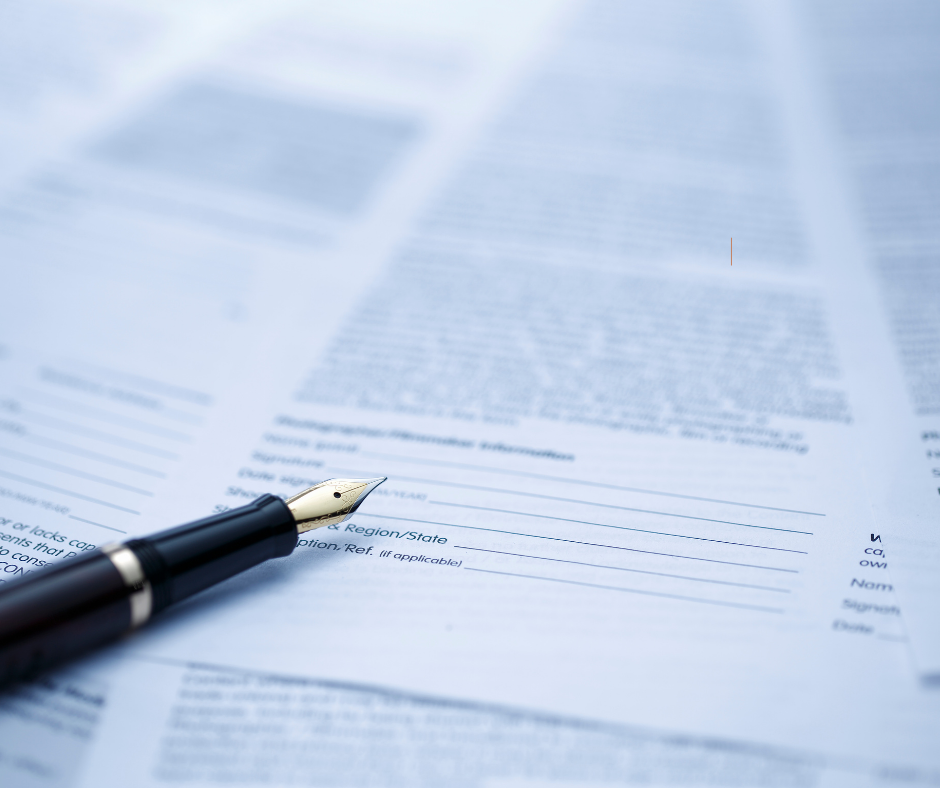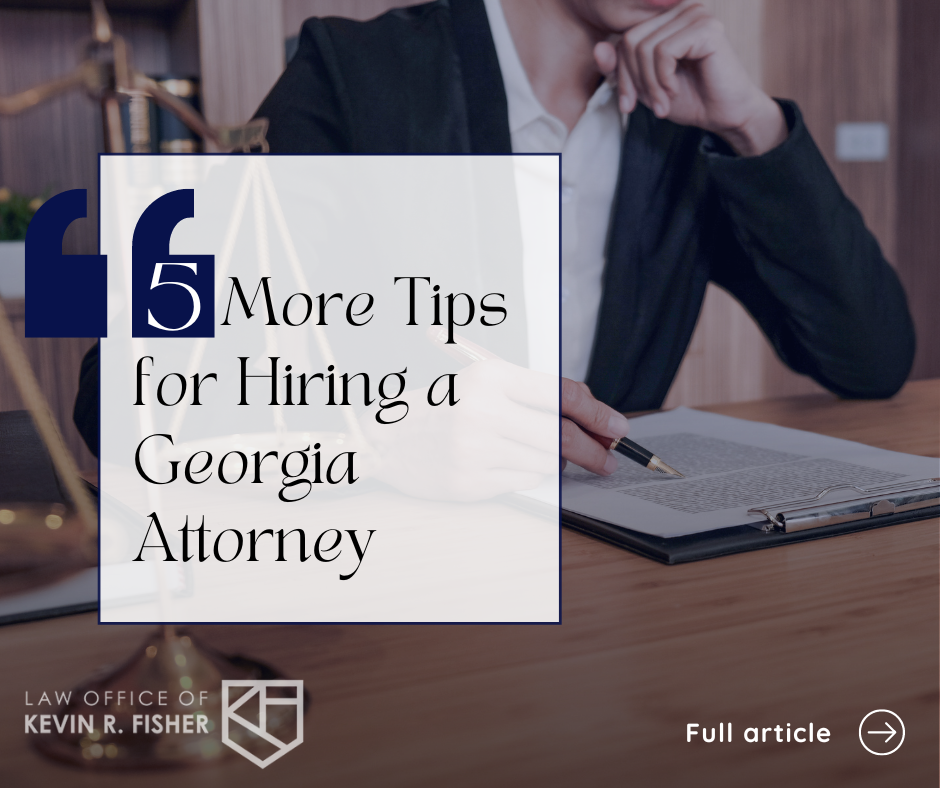This post picks up where last week’s left off. If you missed that one, here’s my first post on Five Essential Tips for Hiring a Georgia Attorney. Go back and check it out, then head back here for Five (More) Tips for Hiring a Georgia Attorney!
In this post, you’ll learn a few things that you should ask a lawyer you’re thinking of hiring, plus a few things you should keep in mind during the process.
1. Ask about the lawyer’s communication policy. How do you get in touch with them?
It’s never a good thing when your lawyer disappears, only to reappear the day before court. It is anxiety-inducing for clients (not to mention unprofessional on the lawyer’s part). Unfortunately, though, it does happen from time to time. Of course, the attorney who does this is 100% at fault. But you can do your best to avoid it by understanding your attorney’s (or potential attorney’s) communication policies.
Lawyers do tend to be busy people, and clients should know that sometimes their lawyers will be unavailable to answer their calls. For example, they must have their phones silenced when they are in court.
However, feel free to ask your lawyer (or potential lawyer):
- “If I call and you are unavailable, how quickly will you get back to me?”
- “Should I contact you by phone? Email? Text?”
You can also get a sense of the attorney’s communication style from client reviews, which I talked about in my last post. As an example of what to look for, here’s one that one of my clients wrote:
“[Kevin] was always available to me at any time. He responded to all of my emails, phone calls, text messages within minutes. The process took a long time due to COVID but Kevin stayed on top of my case. He kept me updated on all communications with the prosecutor.”
2. Ask about the attorney’s fee structure.
Lawyers usually structure their fees in one of several ways. These include:
- Contingency fees,
- Hourly fees, and
- Flat fees.
Contingency fees, where the lawyer charges a fee dependent upon success in the case, are illegal in Georgia criminal cases. But hourly and flat fees are common.
Hourly fees are just how they sound. The attorney charges you for every hour (or portion of an hour) they spend working on your case. They may charge different hourly rates based on the work they are doing (for example, legal research may be billed differently from courtroom appearances). In law firms, junior associates will have lower hourly rates than senior partners.
In a flat fee agreement, the attorney will quote you a fee for handling the entire case (or portion of the case, depending on the agreement).
You should feel free to ask for clarification about what the flat fee covers so that everyone is on the same page. For example, if your case goes to trial and you lose, you may wish to appeal the decision. An appeal will probably not be included in the flat fee.
During this part of the conversation, you can also ask if a payment plan is available. Not all attorneys will accept payment plans, but some will. A payment plan can make legal fees more feasible for someone on a budget.
Finally, if an attorney quotes you a fee out of your budget, feel free to ask them if there is another attorney in their firm who is more affordable, like a junior associate. Junior associates may have fewer years on the job, but they are often brilliant attorneys in their own right who get excellent results for their clients.
And yes, this is where I give a shoutout to my awesome associate, Jaime Steinhaus.
3. Get a contract, read it carefully, and ask questions if you need to.

A contract is a legally binding document. It outlines the terms of your agreement with your attorney, so you should read it thoroughly. It should be specific about your responsibilities to your lawyer, and your lawyer’s responsibilities to you.
Of course, a lawyer cannot anticipate every contingency. Sometimes, things change unexpectedly during the course of representation. For example, if you pick up new charges after you’ve retained a lawyer, that may change how the attorney must proceed with your case. If things change substantially or the lawyer asks for more money outside of what was included in the initial contract (and you agree), ask for a new contract. Always make agreements in writing.
In addition to defining the scope of the relationship, a contract for legal services will likely detail fees and what they cover (and what they do not cover), as well as your payment plan (if applicable).
Remember, the contract isn’t just to protect the lawyer. It protects you too. It ensures that everyone is on the same page regarding the scope of representation, fees, and communication between the client and attorney (among other things).
4. Remember, you have the right to fire your lawyer.
Sometimes, the attorney-client relationship just isn’t working out. Maybe your attorney has disappeared or has been unprepared for court. Remember, you have the right under the 6th Amendment to counsel of your choice. For this reason, it is possible to fire your lawyer and hire a new one.
Often, judges will grant continuances (postponements) of proceedings to give your new attorney time to prepare for your case. However, you should not assume that judges will grant a continuance, especially if you wait until the last minute to retain new counsel.
And you should not request a change in counsel to delay proceedings. Judges are not obligated to work around you if you fire your lawyer at the last minute. Plus, it will almost certainly annoy the judge, which is never a good thing.
5. Move quickly!
You should not wait until the day before your court date to start shopping for an attorney. Your attorney needs time to prepare for court. It may seem like we are superhuman, but we have to manage our time carefully like everyone else!
Depending on the complexity of the case, your new lawyer may have to conduct an investigation. And sometimes, conversations with prosecutors take more time than can be done in a few hours. Certainly, preparation for trial cannot be done in an afternoon. I guarantee, your attorney will thank you for hiring early. Plus, it’s highly likely that you’ll see a better result, and that’s why you’re hiring a lawyer in the first place, right?
Additionally, if you drag your feet and wait until the last minute to hire a lawyer, there’s a chance that the judge will force you (and your new lawyer) to proceed with the case despite the lack of time to prepare. Georgia courts have stated that “while every defendant has the right to hire counsel, a defendant must use reasonable diligence in obtaining retained counsel.” So, if you are in a position to require an attorney, don’t wait! Follow these tips today and you’re sure to find an attorney who will provide you with excellent representation.
Questions? Want to hear my answers to all these questions? Get in touch today!

